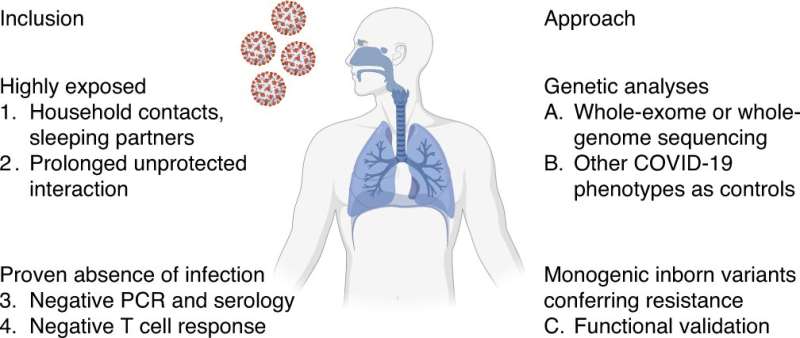
An international team of medical scientists has published a Perspective piece in the journal Nature Immunology, outlining ongoing research into why some people are resistant to SARS-CoV-2 infections. In their paper, they note that very little is currently known about why some individuals are immune to COVID-19, but they suggest that a stronger effort to find out could lead to new ways to treat or prevent the disease.
The authors note that the pandemic has served to remind the global community of the remarkable variability in viral response—some people are asymptomatic while others get so sick that they die. They note also the clear differences that researchers have observed; for instance, cases in which a single person in a family remains uninfected while everyone around them gets sick; or people who work in a high-risk environment but who do not get sick.
The authors also note that as of right now, no one really knows why there is such variability in response to SARS-CoV-2 infections, though there are clues. There have been some reports that people with type O blood, for example, suffer less when infected. And there have been other studies that suggest certain proteins produced by the body are more or less active when confronted with the SARS-CoV-2 virus. It has also been revealed that the virus needs proteins that have receptors such as ACE2 or TMEM41B. If people lack the receptors, the virus is unable to replicate.
Source: Read Full Article





